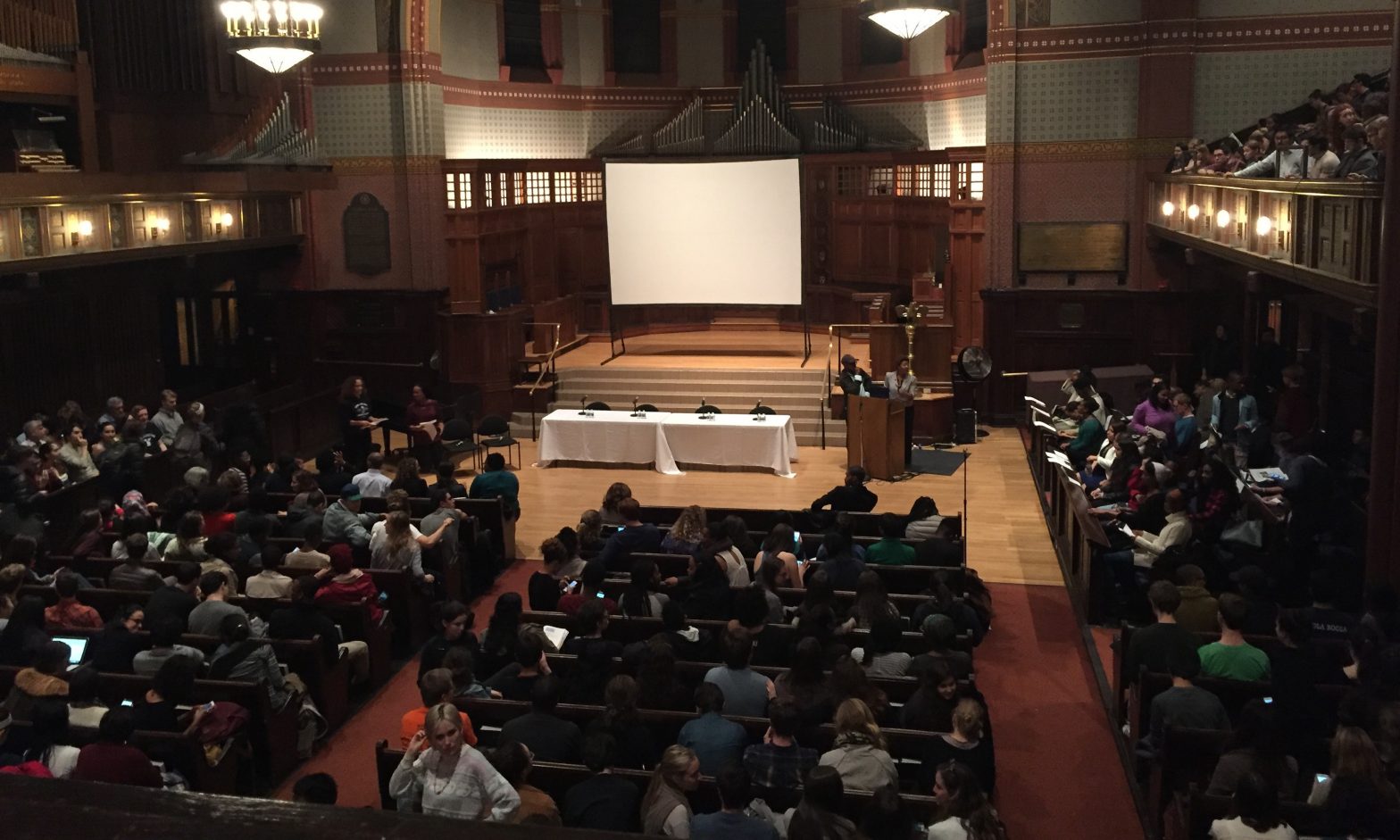If I had to pick one takeaway from Wednesday night’s Race at Yale Teach-In (and let me tell you, I have a lot of takeaways to pick from), it would be this: Educate yourself.
Over 1,000 people – students, faculty, and New Haven residents – came to Battell Chapel to hear four panels addressing four issues that the movement at Yale seeks to address: valuing women of color at Yale, addressing white and male privilege, mental health and its impacts on communities of color, and the importance of ethnic studies. The panels were organized by people of color, many of the very same people who have borne the brunt of the emotional pain of the last few weeks (and decades) on campus as well as the brunt of the misreporting and criticism leveled at campus activists by far too many news media outlets. They did not have to organize this. It is not their job to educate the rest of us about any of these issues because we should have educated ourselves. And we still should educate ourselves. Wednesday night was just the beginning of a learning process that must continue to occur throughout the rest of our lives. It is that important.
Because of the unbelievable incapacity of the news media to report the events of the last week with any integrity, the teach-in was conducted almost entirely off the record.
If it had been on the record, I would have been able to share with you the heart-rending and beautiful lines of the spoken word performances that brought the entire chapel to its feet three times. I would have been able to share with you the passionate arguments in favor of creating an Ethnic Studies department at Yale, in the words of the students and faculty who so eloquently made them. I would have been able to explain exactly what motivated the people who came in late and missed out on a seat in the chapel’s pews to sit on wooden stairs and stand against back walls for almost three hours, because the information and the stories we heard were that important and, for many of us, that new.
But I can’t. So instead, I want to share with you the reading list that I compiled during the event. These are the books, authors, articles, and even classes referenced by tonight’s panelists. The list is long, but it is by no means exhaustive. Like the teach-in, it is a starting point. We can’t read an article or two and think that we have done our due diligence. We have to read, learn, and let it change our actions. The movement sparked by the last two weeks cannot die out, cannot be categorized as merely an intellectual debate. It has to continue until we see real, substantive change in this community and in the community outside of these walls. But if you don’t know where to start, start here:
Books
This Bridge Called My Back
I Put a Spell on You: The Autobiography of Nina Simone
The New Jim Crow
A Taste of Power: A Black Woman’s Story
All the Women Are White, All the Blacks Are Men, but Some of Us Are Brave
Why Are All the Black Kids Sitting Together in the Cafeteria?
Black Feminist Thought
Black Revolution on Campus
Assata: An Autobiography
Articles
Yale Professors
Inderpal Grewal
Jafari Allen
Elizabeth Alexander
Authors
Classes
WGSS 206b Globalizing Gender and Sexuality
ER&M 210 Race and Gender in American Literature

